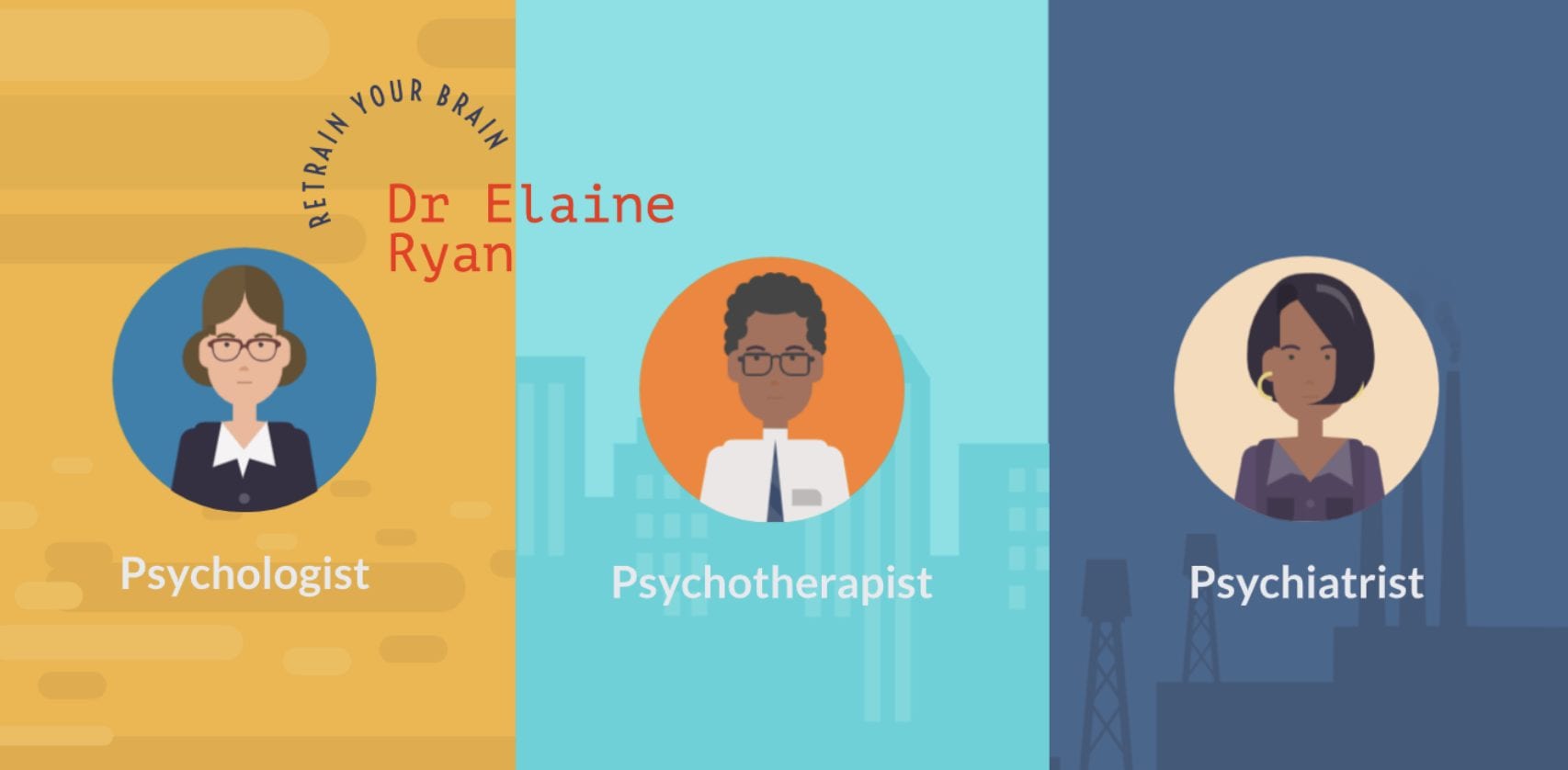Psychologist, psychotherapist, psychiatrist; what’s the difference?
If you are considering undertaking talking therapy, you may have already come across all the different therapists. I am often asked to explain the difference in therapist names, and this article summarizes the therapists you may come across.
The most apparent difference in all the titles is in training. After completing an undergraduate degree in psychology, a person has to complete doctoral-level training to become a psychologist.
Counsellors and psychotherapists do not have to have an undergraduate degree in psychology; their training can be at a diploma or undergraduate level, and some are at Master’s degree level.
A psychiatrist is a medical doctor who then specialises in psychiatry. Not all psychiatrists offer therapy.

What is a psychologist?

A psychologist is someone who has studied the brain, emotions and behaviour. Psychologists study how you think and interact with people.
A psychologist will have an undergraduate degree in Psychology before embarking on professional training at the doctoral level. It is notoriously difficult to get accepted into professional training programs, and most people end up having at least a Master’s degree and a few years of relevant work experience as an assistant psychologist before getting accepted for professional training.
It can confuse, but someone with a psychology degree is not a psychologist. An undergraduate degree in psychology gives a person a good understanding of cognitive and social psychology and child development. Still, a person with just a degree in psychology will not have received formal training in models of therapy and mental health conditions.
To call yourself a psychologist, you shall have undertaken postgraduate training courses recognised by a professional body.
Where do they work?
Psychologists work mainly in health care settings, such as the HSE, NHS, or private practice.
How do psychologists help?
Psychologists can help you through talking therapy. As part of their doctoral training, a psychologist will have studied various therapy models, such as Cognitive Behavioural Therapy, and had their clinical practice supervised whilst working within the model.
Psychologists help by undertaking complete assessments of your difficulty and providing an explanation for what is happening to you and a treatment plan covering what they recommend you do to feel better.
Psychologists can help with all forms of mental health problems and also help with lifestyle changes, managing chronic illness, and relationship problems.
What is a counsellor?
A counsellor is someone who has studied at a diploma or degree level. They do not have to have an undergraduate degree in psychology.
According to the IACP, as of 2018, to be accredited as a counsellor in Ireland, the person has to have, at the minimum, an undergraduate degree or postgraduate qualification.
Where do counsellors work?
Counsellors can work in universities, private practice and some health care settings working in addiction centres and offering bereavement help or relationship help.
What can they help with?
Counsellors can help you to explore difficulties you may have and can help with problems such as anxiety and depression.
What is a psychotherapist?

Psychotherapy is another word for talking therapies.
The term ‘psychotherapist’ is not a job title as such. Psychotherapy refers to talking therapies.
A psychologist, psychiatrist or another mental health professional may be called a psychotherapist if they have training in psychotherapy. For example, the title of my full doctoral training was in psychotherapeutic and counselling psychology
There are many different approaches in psychotherapy, or talking therapies, which include:
- cognitive behavioural therapy
- , psychoanalytic therapy
What is a psychiatrist?

Psychiatrists are medical doctors who specialise in mental health. In addition to diagnosis, they can also prescribe and monitor medication.
Where do they work?
Psychiatrists can work in HSE or NHS as part of mental health teams. For example, when I worked in mental health teams in the NHS, psychiatry was part of our multi-disciplinary team.
